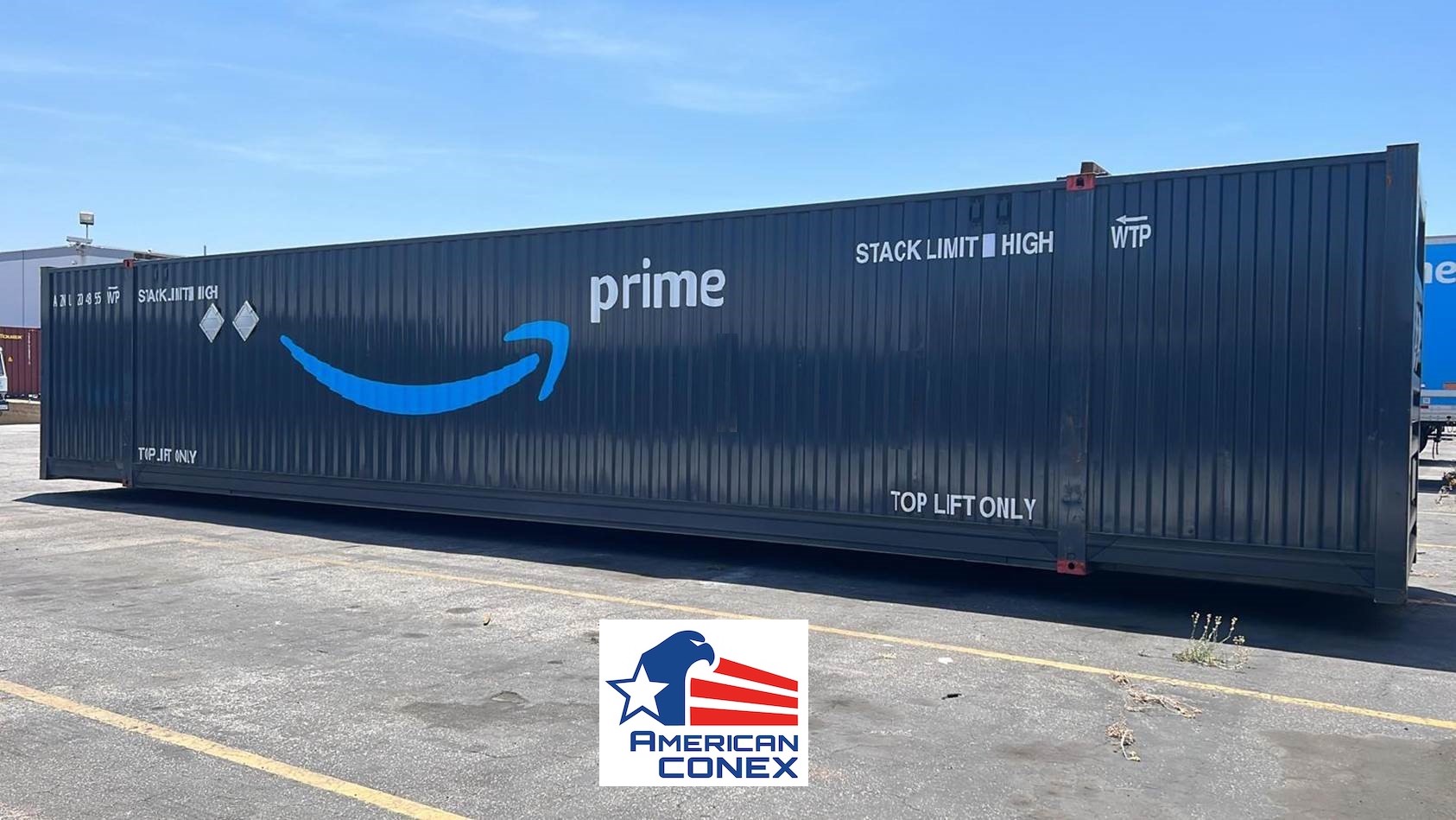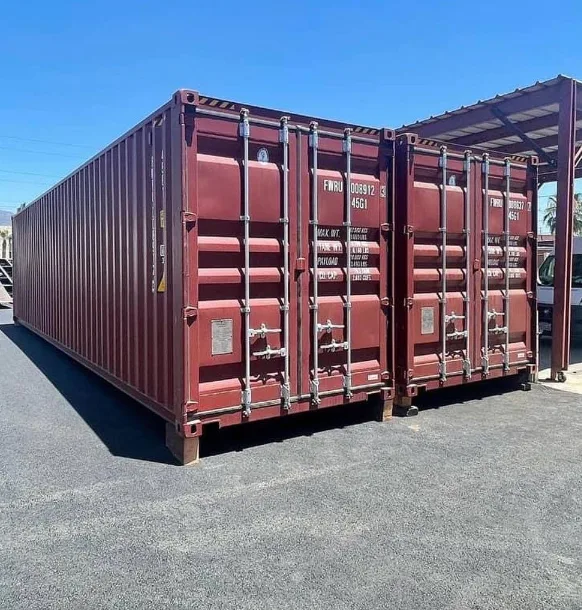The Ultimate Overview to Choosing the Right Shipping Container for Your Demands
When it pertains to choosing the ideal delivery container, recognizing your certain demands is vital. You'll wish to think about factors like dimension, type, and material to guarantee you make the very best selection. From conventional dimensions to specialized options, there's a lot to explore. Plus, budgeting for both the container and any type of alterations can make a big distinction. Let's break down the essential elements to assist you find the ideal fit for your requirements.
Recognizing Shipping Container Sizes
When you're selecting a delivery container, comprehending the different sizes readily available is crucial for making the ideal choice. Shipping containers usually can be found in common lengths of 20 and 40 feet, yet you'll also discover other measurements. Recognizing the dimension you need depends upon what you plan to store or transport.If you're moving smaller sized things, a 20-foot container may be optimal, while bigger shipments typically call for a 40-foot container. The elevation can also differ; high dice containers use additional vertical space, which can be helpful for taller goods.Before making a decision, gauge your cargo, and take into consideration how much space you'll require for loading and discharging. Always variable in prospective future needs-- choosing a somewhat bigger container may save you trouble down the line. Eventually, choosing the appropriate size will certainly enhance effectiveness and guarantee your things are safe during transit
Types of Shipping Containers Available
There are several kinds of shipping containers offered, each created for particular objectives and freight requirements. The basic dry container is flexible, best for general cargo. If you're delivering disposable items, take into consideration a chilled container, which keeps a controlled temperature level. For extra-large things, high cube containers use added elevation, suiting taller loads.If you require to deliver heavy machinery or devices, flat shelf containers provide a sturdy base without wall surfaces. Open-top containers allow for easy loading of high cargo, with a detachable tarpaulin covering for security. If you're looking for flexibility, consider a retractable container that can be conveniently stored when not in use.Lastly, specialized containers like container containers are made use of for liquids, while vented containers are designed for bulk freight that requires ventilation. Recognizing your cargo kind will certainly aid you pick the appropriate container to meet your shipping requires successfully.
Product Factors To Consider for Longevity
When selecting a delivery container, the product plays a crucial role in its longevity. You'll intend to consider the benefits of steel versus light weight aluminum, specifically relating to deterioration resistance. Understanding these elements can help you make an extra educated selection for your shipping requires.
Steel vs. Aluminum Containers
Just how do you select in between steel and aluminum containers for your shipping needs? Beginning by taking into consideration durability. Steel containers are durable and offer outstanding toughness, making them optimal for heavy loads and extreme problems. They stand up to damages from influences and are usually much less expensive, which can be a significant element for budget-conscious buyers.On the other hand, light weight aluminum containers are light-weight, which can save you on shipping expenses. They're less complicated to navigate and are a terrific selection if you need to transport goods regularly. Light weight aluminum is usually more pricey and much less durable than steel. Consider your particular demands meticulously, including weight, expense, and the kind of freight you'll be shipping, to make the right choice for your situation.
Corrosion Resistance Factors
Choosing the right product does not simply entail weight and cost; rust resistance plays a considerable role in resilience. When choosing a delivery container, consider the atmosphere it'll deal with. Steel containers, while solid, can rust if not properly dealt with. find Look for options with protective finishings or galvanization to improve their life-span. Light weight aluminum, on the other hand, provides natural deterioration resistance, making it perfect for coastal areas or damp conditions. It can be much more costly. In addition, examine the container's use-- if it'll be exposed to chemicals or rough weather, prioritize products that can stand up to these conditions. Spending in a corrosion-resistant container now can conserve you from expensive repairs or substitutes down the line. Select carefully for long-term advantages.
Adjustments and Modification Options
Shipping containers aren't simply for transporting items; they can be transformed to satisfy your certain needs with numerous modifications and customization options. You can convert a standard container right into a relaxing office, a short-lived retail store, or also an individual health club. The opportunities are virtually endless.Think about including home windows, insulation, or ventilation to enhance convenience. You might also take into consideration electrical wiring, pipes, or perhaps custom-made shelving to enhance capability. If safety and security's a concern, enhanced locks can give peace of mind.For visual allure, you can repaint the container or add a special style to make it stick out. Don't neglect regarding floor covering options-- whether you want durable plywood or something more innovative, it can elevate the space.Ultimately, tailoring your delivery container to fit your demands can boost functionality and create an one-of-a-kind setting that mirrors your design.
Assessing Your Transportation Demands
When it comes to utilizing your customized delivery container, comprehending your transport requires is crucial. Start by establishing what you'll be shipping-- whether it's heavy equipment, retail items, or personal things. Each kind of freight has different demands pertaining to dimension, weight, and accessibility.Next, think about the range and mode of transportation. Are you shipping in your area, country wide, or globally? This impacts the container's layout and performance. If you're making use of vehicles, assure your container fits basic measurements for simple loading and unloading.Additionally, think of transportation problems. Will your products need unique protection from climate or temperature variations? If so, you could require insulation or ventilation features in your container.Lastly, assess just how typically you'll be carrying products. Frequent shipments may need a more resilient and functional container to meet recurring needs. By resolving these factors, you'll be well-prepared to choose the best shipping container for your needs.
Budgeting for Your Shipping Container
Setting an allocate your delivery container is vital for making certain a smooth getting process. Identify exactly how much you can pay for to invest. Prices can differ substantially based on size, problem, and type. New containers usually set you back more, however utilized ones can provide substantial savings.Next, consider any type of added expenses you may sustain, such as transportation costs, shipment fees, and alterations. If you plan to customize the container, consider those costs too. Research study various providers to compare prices and locate the finest deal that meets your needs.Don' t forget to consist of any authorizations or laws that may apply to your acquisition and use the container. By plainly detailing your spending plan, you'll be better prepared to make enlightened choices, ensuring you get the ideal container without breaking the financial institution.
Upkeep and Look After Long life
To ensure your delivery container lasts for many years, regular upkeep is key. Beginning by checking the exterior for corrosion, damages, and damage. If you detect any issues, address them immediately to avoid further deterioration. Clean the container regularly, both throughout, to remove dirt, over at this website debris, and wetness that can cause corrosion.Ensure the doors seal effectively and lubricate the joints to avoid corrosion and sticking. If you're making use of the container for storage, think about including ventilation to reduce humidity and mold development. For additional security, use a rust-inhibiting paint or sealant annually.If your container's located in a rough environment, like seaside areas, you could straight from the source need to increase upkeep regularity. Keep an eye on the flooring, as well; any indications of wear need to be fixed right away. With these straightforward actions, you'll prolong the life of your shipping container considerably.
Regularly Asked Concerns
Exactly how Do I Locate a Dependable Shipping Container Vendor?
To locate a reliable shipping container vendor, beginning by researching online testimonials, asking for referrals from pals or market get in touches with, and comparing rates. Always examine their qualifications and warranty they offer quality containers that meet your demands.

Can I Rental Fee a Shipping Container Rather Than Purchasing?
Yes, you can most definitely lease a delivery container rather than purchasing one. Numerous distributors provide rental choices, which can conserve you money and supply flexibility if you just need it for a brief duration.
What Allows Are Required for Container Placement?

Are Shipping Containers Weatherproof and Appropriate for Outdoor Storage Space?
Yes, shipping containers are typically weatherproof, designed to stand up to severe conditions. Their durable building and construction maintains your items safe and secure and completely dry, making them suitable for outside storage. Just ensure appropriate ventilation to avoid moisture accumulation inside.
Just how Do I Transfer a Delivery Container Once Bought?

Comments on “How to Buy New Shipping Container 40 x 8 x 9.6 and Convert It into an Eco-Friendly Office”